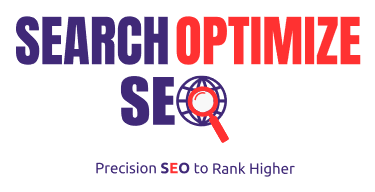In Germany’s competitive digital landscape, local businesses must prioritize visibility on Google to attract nearby customers. Whether you run a café in Berlin, a dental clinic in Munich, or a digital agency in Hamburg, optimizing for local SEO is essential to dominate “near me” searches.
This guide explains how to improve local Google rankings in Germany, using proven strategies tailored for German search behavior, language preferences, and Google’s local ranking factors.

1. Understand the German Local Search Landscape
Local SEO in Germany is unique due to the country’s linguistic diversity and regional targeting needs. Google.de dominates the market, making it vital to optimize your business profile specifically for German-speaking users.
Key points to note:
- Over 90% of Germans use Google for local searches.
- “In der Nähe” (near me) searches have grown exponentially.
- Localized keywords in German language (e.g., Bäckerei in München, Zahnarzt Berlin Mitte) perform better.
Focus on German-language content and region-specific optimization to connect with your target audience authentically.
2. Optimize Your Google Business Profile (GBP)
Your Google Business Profile (formerly Google My Business) is your digital storefront. Optimizing it can directly improve your visibility in Google Maps and local pack results.
Steps to optimize GBP:
- Use your real business name (avoid stuffing keywords).
- Add your address, phone number, and working hours accurately.
- Select the correct business category (e.g., Immobilienagentur for real estate agencies).
- Upload high-quality images of your location, team, and services.
- Encourage customers to leave authentic reviews in German.
💡 Pro Tip: Respond to reviews professionally — in German. This boosts engagement signals that Google values highly.
3. Use Consistent NAP Across All Directories
NAP stands for Name, Address, and Phone number. Consistency across directories like Das Örtliche, Yelp.de, GoLocal.de, and Meinestadt.de helps Google verify your business credibility.
Inconsistent details confuse Google’s algorithms and may harm rankings. Use structured citations and ensure all profiles reflect identical information.
4. Target German Local Keywords
Keyword research is the foundation of local SEO. For Germany, focus on geo-modified German keywords like:
- Bäckerei in Köln
- SEO Agentur Berlin
- Autowerkstatt München
Use tools like Google Keyword Planner, Ahrefs, or Ubersuggest and filter results for Germany (DE) to identify high-volume local queries.
Integrate keywords naturally into:
- Title tags & meta descriptions
- Headers (H1, H2)
- Website copy and blogs
- Google Business descriptions
5. Create Location-Specific Landing Pages
If your business serves multiple cities, create individual landing pages targeting each area. For example:
- /seo-service-berlin
- /seo-service-hamburg
Each page should include:
- City-based keyword targeting
- Local testimonials or reviews
- Embedded Google Maps
- Schema markup for local business
This strategy strengthens your geographical relevance and improves ranking potential in each target area.
6. Build Local Backlinks from German Websites
Backlinks remain one of the strongest ranking factors. For local SEO in Germany, prioritize backlinks from local German domains (.de) such as:
- Local newspapers and blogs
- Chambers of commerce (Handelskammer)
- Community websites and directories
Participate in local events, sponsor regional activities, or collaborate with local influencers to earn natural backlinks and mentions.
7. Optimize for Mobile Search

Over 70% of local searches in Germany occur on mobile devices. Ensure your website is:
- Responsive (mobile-friendly)
- Loads within 3 seconds
- Features click-to-call buttons and Google Maps integration
Google’s “mobile-first indexing” means mobile optimization is non-negotiable for top local rankings.
8. Implement Local Schema Markup
Add LocalBusiness schema markup to help Google understand your business information better. Include details like:
- Business name
- Address
- Phone number
- Opening hours
- Geo-coordinates
This structured data can enhance your appearance in search results with rich snippets, increasing click-through rates.
9. Leverage Reviews and Reputation Management
In Germany, trust (Vertrauen) is everything. A high number of positive, authentic reviews can significantly boost your local ranking.
Encourage satisfied customers to leave Google reviews and industry-specific platform reviews (like ProvenExpert or Trusted Shops).
Avoid fake or incentivized reviews — they can harm your reputation and violate Google’s guidelines.
10. Publish Locally Relevant Content
Content marketing supports your local SEO goals by showcasing authority in your region. Create blog posts or news updates about:
- Local events or community initiatives
- Case studies featuring local clients
- Tips related to your industry in your city
For example:
- “Top 5 SEO Trends for Berlin Startups”
- “How Munich Businesses Can Rank on Google Maps”
Localized content helps Google connect your brand to specific regions.
11. Use Social Media for Local Engagement
Social media indirectly impacts local SEO by increasing brand awareness and engagement. Use platforms like Facebook, Instagram, and LinkedIn Germany to:
- Post location-based updates
- Tag your business location
- Interact with customers and communities
Include links to your website and encourage followers to leave reviews or share experiences.
12. Monitor Performance with Google Analytics and Search Console
Use Google Search Console (GSC) to track local keyword impressions and clicks, and Google Analytics to measure user behavior and conversions.
Key metrics to monitor:
- Click-through rate (CTR)
- Bounce rate by location
- Local keyword rankings
- Mobile traffic
Review your data monthly and adjust strategies accordingly to stay ahead of competitors.
13. Adapt to German SEO Regulations (DSGVO)
Ensure your website complies with GDPR (DSGVO). This includes:
- Cookie consent banners
- Data privacy policies in German
- Secure HTTPS protocol
Non-compliance can hurt your rankings and damage user trust.
14. Optimize for Voice Search
Voice search is growing in Germany. Optimize for conversational queries like “Wo ist der beste Friseur in Hamburg?” or “Welche SEO Agentur ist in Berlin top?”.
Use natural language in your content and FAQs to capture these voice-based searches effectively.
15. Continuous Optimization
Local SEO isn’t a one-time task. Google’s algorithms and user behavior keep evolving. Regularly update your content, keywords, and backlinks to maintain strong visibility.
Perform quarterly SEO audits to identify broken links, outdated listings, and new local opportunities.
Conclusion
Improving your local Google rankings in Germany requires a combination of technical precision, localized content, and genuine customer engagement. From optimizing your Google Business Profile to earning local backlinks and ensuring mobile responsiveness, every step builds your credibility and visibility within the German market.
Businesses that invest in consistent local SEO efforts will not only achieve better search rankings but also earn the trust and loyalty of their regional audience.



